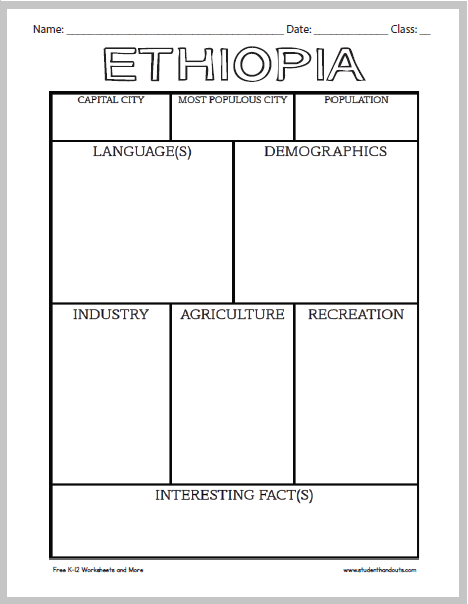Click here to print. Answers will vary.
Ethiopia has a diverse economy, with agriculture as its foundation, alongside growing industry and recreational sectors. Agriculture employs the majority of the population and contributes significantly to the country's GDP (gross domestic product). Ethiopia is known for producing coffee—one of its top exports—along with cereals like teff, maize, and wheat. Livestock herding, especially cattle, goats, and sheep, is also widespread. Most farming is subsistence-based and highly dependent on seasonal rains, making it vulnerable to drought.
Industry in Ethiopia is steadily expanding, driven by textiles, leather goods, food processing, and construction materials. The government has invested in industrial parks to promote manufacturing and attract foreign investment. The energy sector is also key, with major hydroelectric projects like the Grand Ethiopian Renaissance Dam boosting power production.
Recreation in Ethiopia reflects its rich natural beauty and cultural heritage. Tourists and locals alike enjoy hiking in the Simien and Bale Mountains, visiting historic sites like Lalibela's rock-hewn churches, and exploring ancient cities such as Axum and Gondar. Ethiopia's unique festivals, traditional music, and coffee ceremonies also serve as popular cultural pastimes. While the tourism industry is developing, the country's dramatic landscapes, wildlife, and historical treasures offer significant potential for recreational growth and international interest.
|



















































